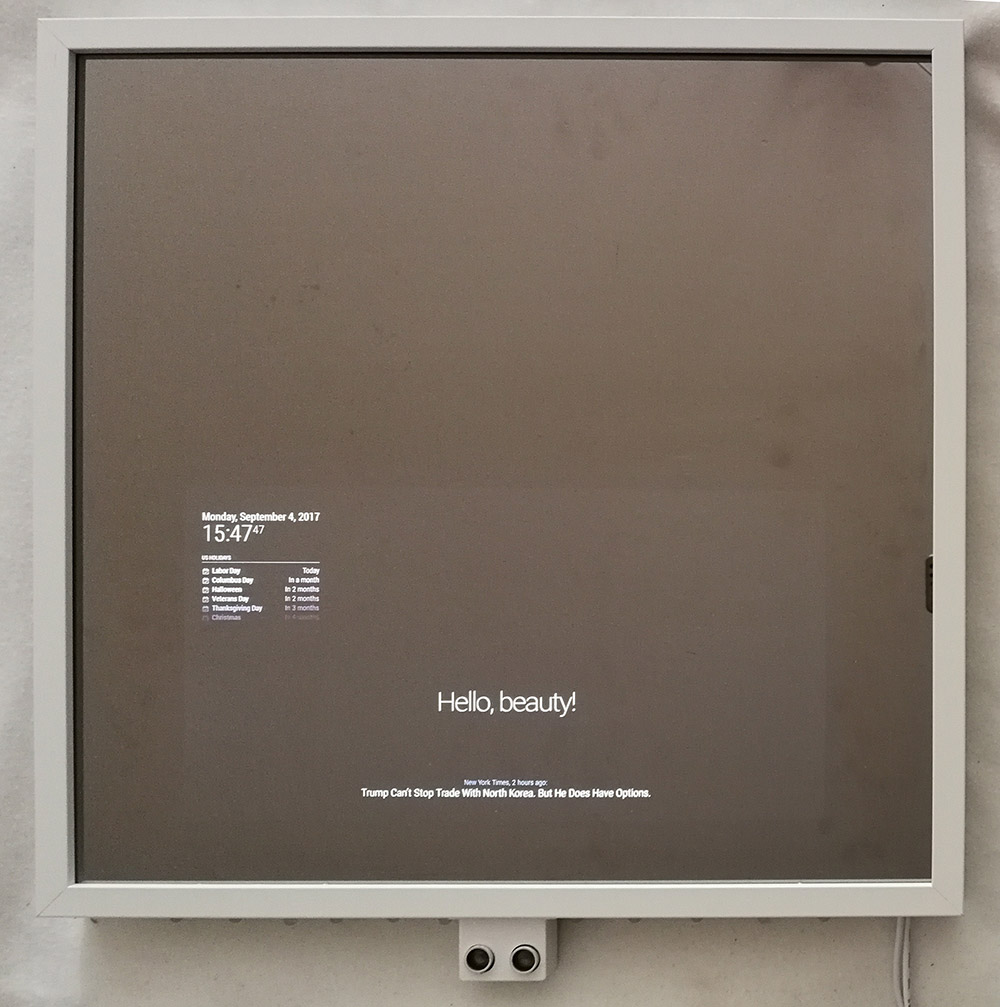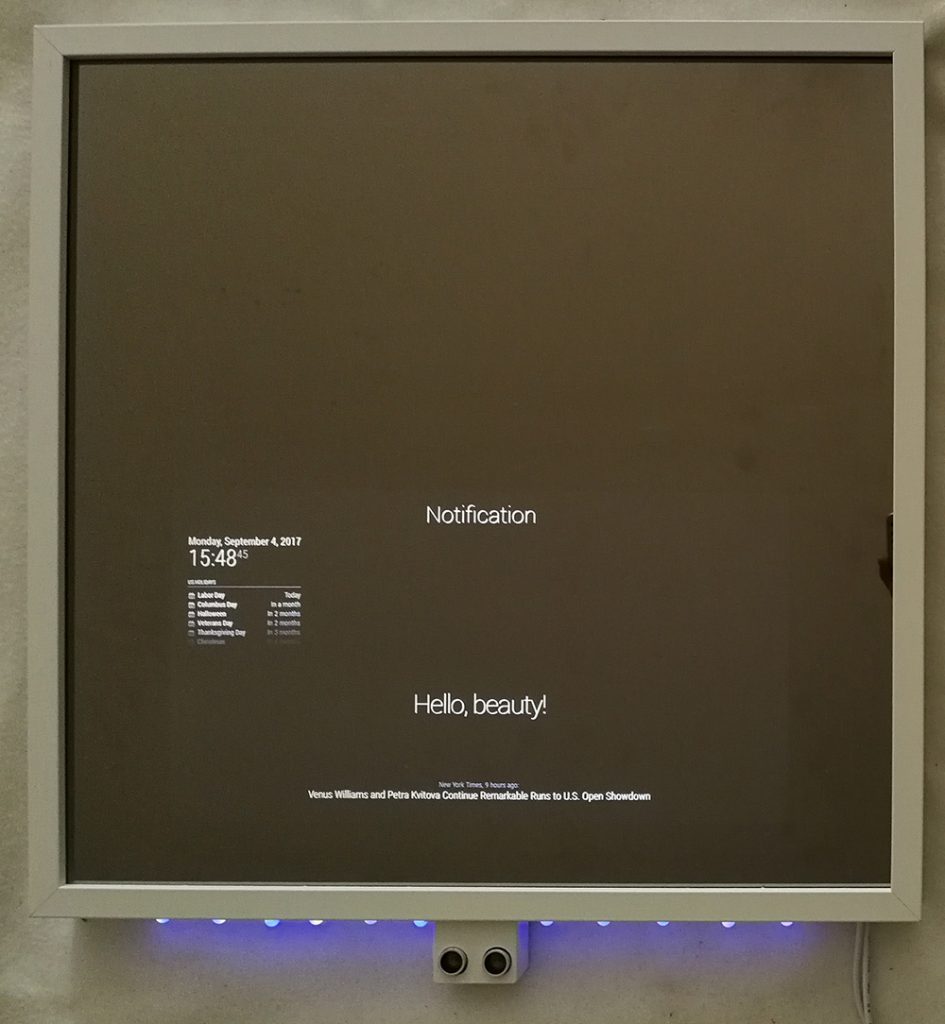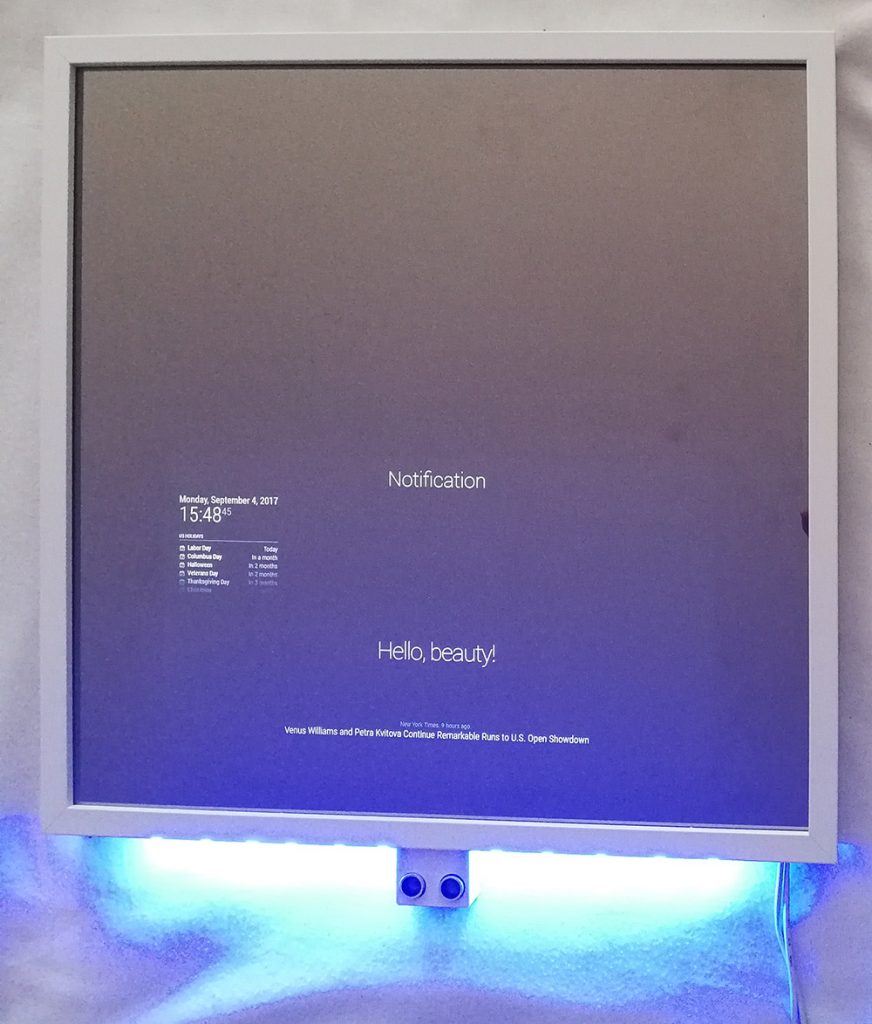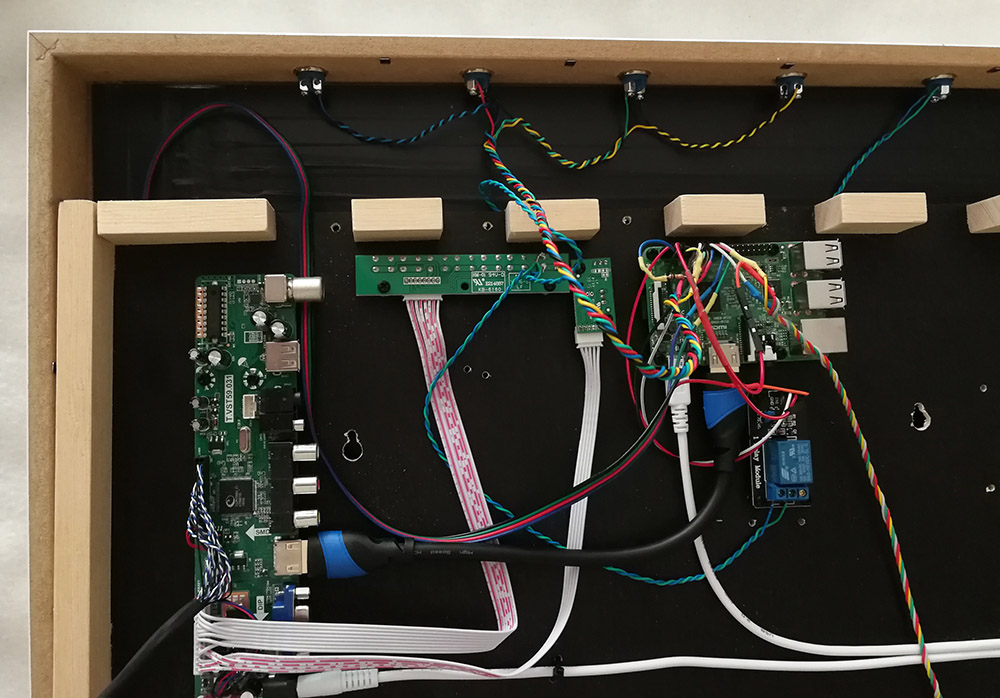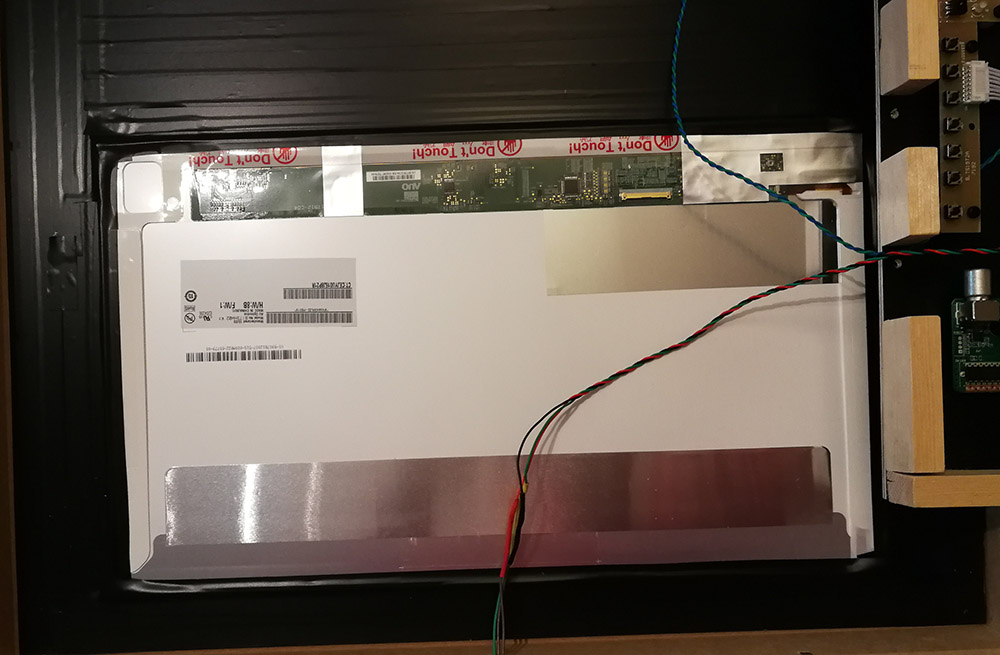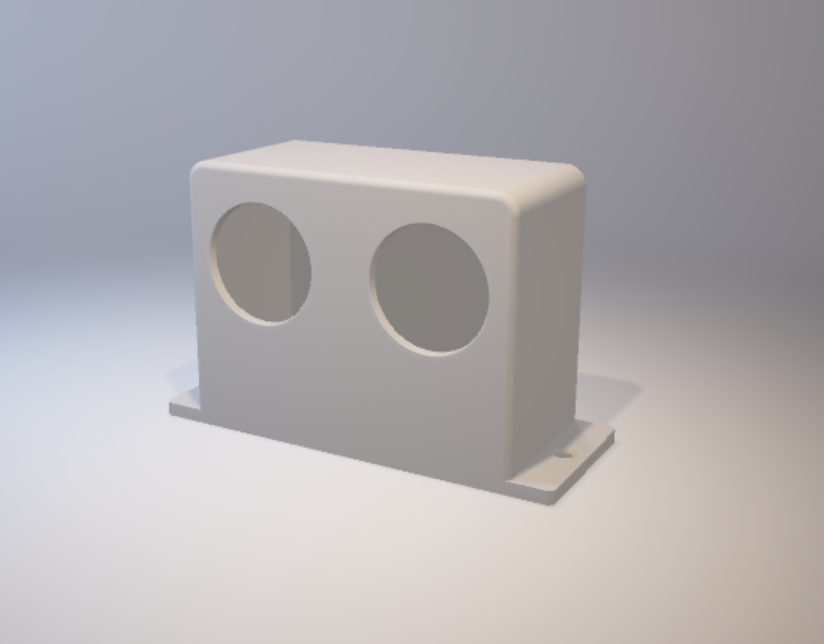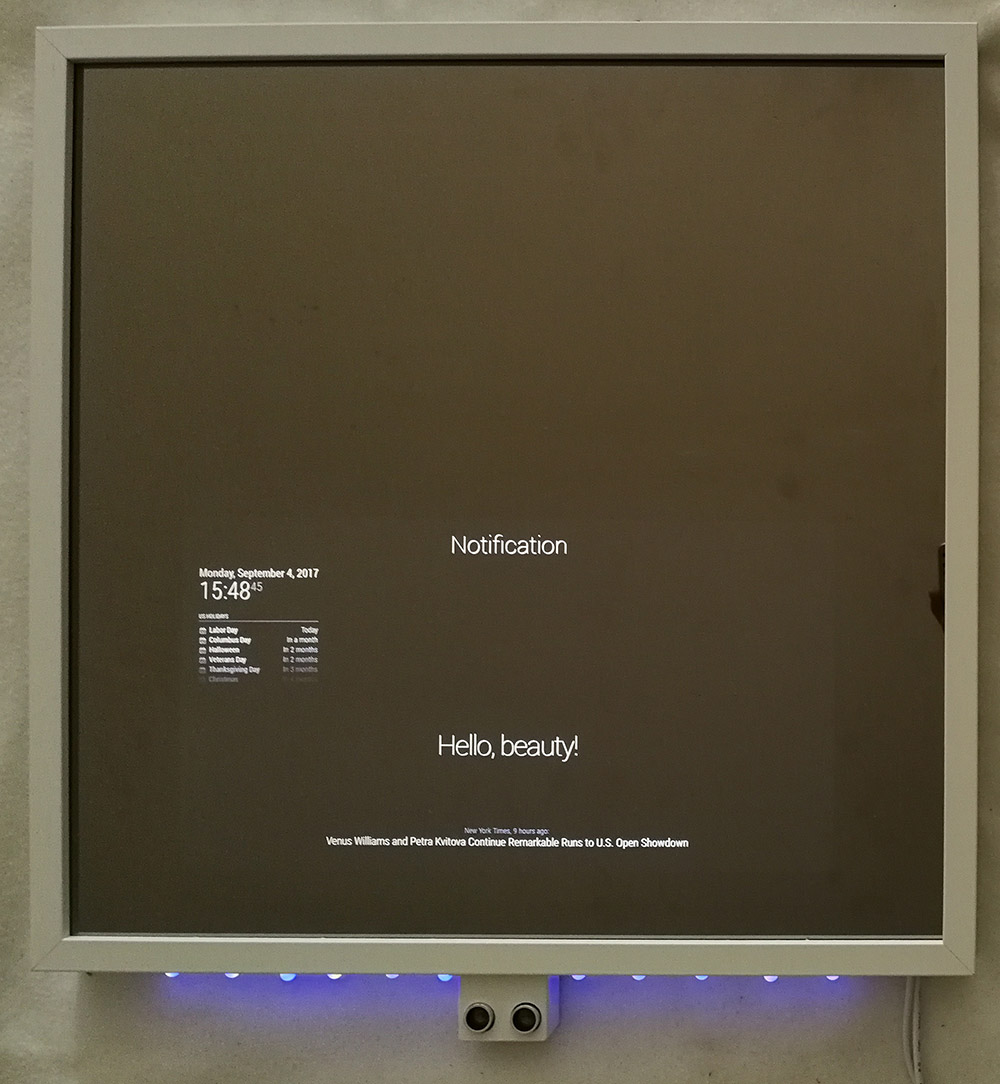In MagPi 54 the MagicMirror² was featured and got my attention. After some research I realized a good two-way-mirror is hard to get. At the same time there was a centralized order for the mirror in germany so I decided to participate.
Since I didn’t want to create a custom frame I based the hardware components on the tutorial off glancr and used a Ikea RIBBA Frame. The Raspberry Pi 3, the display controller and a 5V relay are mounted to a black silkscreen plate which has a wood frame to maintain space for these components.
The LCD display is smaller than the mirror and taped to the mirror. The remaining mirror glass is masked with black rigid PVC to prevent transparency of the inner components.
Some small push buttons on the top of the frame are used to toggle MagicMirror modules and shutdown the mirror.
Most of the time the display can be powered off because nobody is around so I decided to mount a 5V relay to the power button of the display controller. Additionally the power button is also duplicated on the top. A HC-SR04 distance sensor can determine when there is somebody standing in front of the mirror and trigger the relay which triggers the power button of the display controller. When there is nobody around for some time the relay is also triggered to save energy and disable the display. The HC-SR04 sensor is mounted in a self made 3D printed case.
11 WS2801 LEDs are connected by SPI to the Raspberry Pi and can be triggered on incoming notifications.
Parts:
- Two-way-mirror
- Ikea Ribba frame 50x50cm
- black silkscreen plate for the background
- black rigid-PVC, opaque
- Raspberry Pi 3
- LP173WF1(TL)(B2) LCD Display 17.3″ FHD 1920×1080 LED 40pin fqb
- TV/HDMI/VGA/AV/USB/AUDIO LCD controller Board work for 1920×1080 40Pin Lcd Panel
- 5V 1 Channel Relay Board
- VDE isolation tape black
- DC Power CCTV 5.5mm x 2.1mm Female To Male Plug Adapter Extension Cable White 3m
- white micro USB cable
- 16mm Anti-Vandal Momentary Steel Metal Screw Push Button Switch Flat Top
- HC-SR04 Ultrasonic Sensor
- 3D printed HC-SR04 Housing
- WS2801 LED strip
- 12V power supply for the display
- 5V USB power supply for the Raspberry Pi
